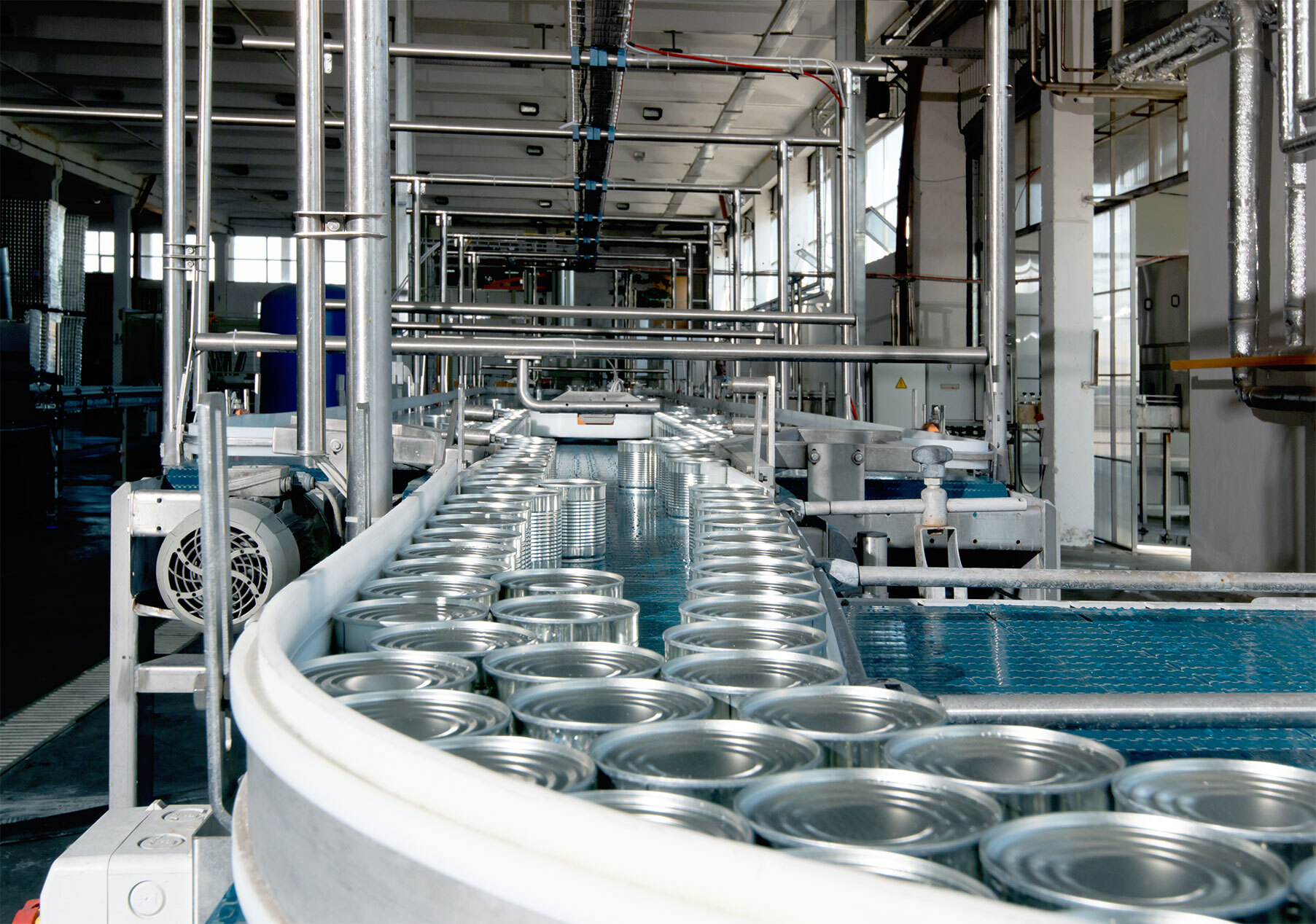Odour removal at a pet food factory in the UK
Food factories, especially those that handle meat and fish, are frequent sources of odour nuisance. They are likely to emit volatile organic compounds (VOCs) and sulphurous compounds, resulting in complaints from people living nearby. DESOTEC activated carbon filters are in operation at many such sites across Europe, helping clients to ensure an odour-free atmosphere and good community relations.
The problem
A pet food factory, located next to a residential area in the UK, was receiving complaints about smells.
Initially, the plant believed the main source could be coming from the main plant, where meat and fish are processed into pet food and the air is extracted from the building via a vent on the outside wall.
They were also aware of odours emanating from a vent on top of a two-metre-high waste food storage tank situated outside the main building. Odours were worse when waste was transported from the plant, displacing the air inside the tank out through the vent.


The solution
In early 2020, the plant was proactively contacted by DESOTEC’s UK Sales Manager.
After discussions, the plant decided to trial a DESOTEC filter on the much smaller waste storage tank first. If this proved successful, they would install a separate, larger filter on the main plant vent.
Although the company had not analysed the air stream, DESOTEC engineers drew on their expertise to design a solution using the most suitable type of filter unit and grade of carbon.
Once we received the go-ahead, we delivered an AIRCON 2000 C filter within a fortnight, along with a connector hose and flanges. This model is suitable for a low air flow, such as that from a vent.
Following our guidance, the plant’s engineers found connecting the filter a straightforward task. There was no need to adapt the vent on the tank.
The results
DESOTEC’s filter was installed towards the beginning of summertime, and has proved highly successful.
In fact, the company discovered that the waste storage tank is the factory’s main source of odours, so there was no need to install a larger filter for the main plant, which was a considerable cost saving for them.
However, having solved this problem, the plant later realised a similar problem exists when the tankers come to remove the waste. Similar to the waste tank itself, the tankers also have vents on top through which odorous airstreams are displaced as the tanker fills up.
Currently, this stream is treated with an activated carbon filter from another company. However, this appears to be undersized and gets saturated quickly.
DESOTEC is now in discussion with the company to install a further filter for connection to the tankers. This would be the AIRCON 2000 LPF, which is capable of handling the higher pressure of this stream.
The compactness of DESOTEC filters makes them well suited to busy factory sites where tankers are loading and unloading, or where space is at a premium. Alternatives such as bio-filters, which are another often-used technology for odour control, have a far larger footprint.
Our filters are also ideal for discontinuous production. Whereas bio-filters require a steady stream of contaminants to keep bacteria alive, activated carbon can remain on standby until required.
In the unlikely event that support is needed, DESOTEC engineers are on call 24/7 but the filters are very straightforward to connect and operate.
Once the filters are saturated, they are transported to our facilities in Belgium. There, samples of carbon will be analysed so the right measures can be taken for handling and removing the spent carbon from the mobile filters. Once analysed and approved, the spent carbon is transferred to one of DESOTEC’s four large reactivation furnaces to remove the contaminants and prepare the carbon for re-use.
All molecules that were adsorbed by the activated carbon at the customers’ sites are desorbed in DESOTEC’s reactivation furnaces. These contaminants are then fully destroyed, in accordance with national and European legislation, by an incineration and neutralisation facility. The entire installation and its emissions are under continuous online monitoring, which guarantees that only harmless water vapour is seen exiting the chimney.
By using reactivated carbon, clients not only save money, but also improve their environmental efficiency.
Contact DESOTEC today
This case study highlights just one of the many applications for which DESOTEC mobile filtration solutions are suited. If you have any questions, or want to know if we can solve your plant’s odour problem, please contact our expert team for advice.
Contact our expertsContact DESOTEC today
This case study highlights just one of the many applications for which DESOTEC mobile filtration solutions are suited. If you have any questions, or want to know if we can solve your plant’s odour problem, please contact our expert team for advice.
Contact our experts-
Air & gas purification
Our sustainable filtration solutions ensure air purification, odour control, and high quality process gases such as biogas and biomethane. -
Our unique service
Our closed-loop, full-service model is as unique as your business needs. We’ll define the right filtration setup and safely recycle filtration waste, making it easy to go green. -
Your sustainability journey
We care about protecting our air, water and soil for future generations, just like you. Our filtration solutions help you meet environmental standards, reducing your carbon footprint.


